A WARRING NATION

A WARRING NATION
HONOR, RACE, AND HUMILIATION IN
AMERICA AND ABROAD
Bertram Wyatt-Brown
UNIVERSITY OF VIRGINIA PRESS
CHARLOTTESVILLE AND LONDON
University of Virginia Press
2014 by the Rector and Visitors of the University of Virginia
All rights reserved
Printed in the United States of America on acid-free paper
First published 2014
9 8 7 6 5 4 3 2 1
LIBRARY OF CONGRESS CATALOGING-IN-PUBLICATION DATA
Wyatt-Brown, Bertram, 19322012.
A warring nation : honor, race, and humiliation in America and abroad / Bertram Wyatt-Brown.
pages cm
Includes bibliographical references and index.
ISBN 9780-81393474-7 (cloth :alk. paper) ISBN 9780-81393475-4 (e-book)
1. War and societyUnited StatesHistory. 2. United StatesHistory, Military. 3. RaceSocial aspectsUnited States. 4. HonorSocial aspectsUnited States. 5. HumiliationSocial aspectsUnited States. I. Title.
E181.W98 2013
355.00973dc23
2013023886
CONTENTS
ACKNOWLEDGMENTS
One of the most gratifying aspects of being a historian is the helpfulness and conscientiousness of a host of commentators and contributors to the final product. My debt of gratitude is especially appropriate for the grand assistance of Susan Marbury, my sister-in-law. She helped with the copy-editing, which prevented some serious failings on my part. Margaret Hogan, the copyeditor, was meticulous about tightening the prose, insisting on greater precision in elaboration of materials, and making me rewrite vague and unclear passages to improve the text. Beatrice Burton worked assiduously to check the accuracy of all the endnotes and to amplify any that needed improvement. The outstanding staff at the University of Virginia Press has been remarkably helpful throughout the process. My editor, Richard Holway, himself the author of a very significant work on honor in the ancient Greek tradition, has been a source of inspiration and encouragement. Mark Mones, project editor at the press, has been the soul of efficiency and enlightenment.
This book might never have been written without the intellectual stimulation that David Hackett Fischer provided me. His own many works, especially Albions Seed and Washingtons Crossing, offered indispensable insights into a variety of actions and thoughts. Dave Fischers report to the press as an in-house reader lifted my spirits and no doubt had a salutary effect on the Board of Editors.
A very special debt of gratitude belongs to Anne Wyatt-Brown. Not only has my wife supported this project in every way imaginable, but she has been a lively and most constructive critic, being a fine editor in her own right, and, most of all, throughout many trials, a caring and solicitous helpmeet. I could never have managed this publication without her able and always welcome assistance.
Others who read the work in whole or part and offered suggestions include Larry Friedman, John Pocock, Charles Joyner, Vernon Burton, Ruth Zollinger, Randall Stephens, John Mayfield, and Jean Baker. It has been a great joy to have all those named above as friends, supporters, and critics of this complicated project.
ADDENDUM BY ANNE M. WYATT-BROWN
After Bert died, many people made it possible for us to complete the work that he was unable to oversee. Margaret Hogan and Beatrice Burton showed great ingenuity and patience in the task of checking all of Berts statements and citations for accuracy. Occasionally, Bea was stymied in her efforts to track down all of Berts sources. Friends from Johns Hopkins University and its Sheridan Libraries helped us when we were desperate. For example, Philip Morgan found an article for us that was the source of an important paragraph in Berts text. Later, when Bea Burton couldnt get her hands on a masters thesis from Hopkins, I asked Betsy Merrill at the Sheridan Libraries for help. She enlisted archivist Jim Stimpert, who read Benjamin T. Swartzs masters thesis several times to verify citations. Georganne Burton, Beas mother, hunted up the Yorkville Enquirer, the source of Swartzs citations, in the Clemson Library. Bea consulted Benjamin Swartz himself, who also answered her questions. Without the help of all these people, Berts book would have lacked some important points that enriched his text.
INTRODUCTION
Whenever men and women straighten their backs up, they are going somewhere, because a man cant ride your back unless it is bent.
MARTIN LUTHER KING JR .
There are two sets of laws, the law of honour and the law of justice, which are strongly opposed in many matters.
MICHEL DE MONTAIGNE
Hadellca xun ayaa xanuum kulul.
Humiliation is worse than death; in times of war,
words of humiliation hurt more than bullets.
SOMALI PROVERB
Honor, race, and humiliation, though never previously analyzed together, interact throughout Americas history. By filtering the interactions among honor, race, and humiliation through the lens of American wars, this study illuminates their interdependence. Other writers have dealt with honor and race. Since the 1960s, racial inquiries, in particular, have multiplied, adding much to our knowledge of American culture. Humiliation, however, never has caught the historical imagination. Yet, it is an emotional state that so often generates the impulse to seek revenge for insult, be it against an individual, a family, or a nation. For instance, in response to the Creeks massacre of white families in 1812, General Andrew Jackson wrote, When we figure to ourselves our beloved wives and little prattling infants, butchered, mangled, murdered, and torn to pieces, by savage bloodhounds, feelings reach the highest pitch imaginable. But, the warrior continued, We are ready and pant for vengeance.
Honor is an elusive, ancient, and often misunderstood ethic. Its principles used to dominate public discourse in America, but people now seldom speak of it except in military circles. The decline in general discourse of the use of the term honorable is evident in a Google n-gram chart, a type of visual representation of word usage over time. It shows that the high Nonetheless, honor and its ethics inform much of our understanding of race and humiliation. Race and racism, the most prominent of the three ingredients in this study, have haunted the American past and even present like an avenging force of nature. And one of the features of racism is humiliation. Scholars and journalists have generally used this idea in individual contexts, but not considered it as an elemental emotion. Like racism and honor, humiliation has a history, one that often concerns the way victors treat the vanquished, those placed at a lower status.
In the American past, honor was used in all sorts of contexts; it even helped to define the very character of the slave South. In offering this appraisal, I use examples both from that past and from more recent illustrative events. Over time, Northern honor resided in large-scale institutions rather than in the more intimate, face-to-face style found in the South in which individuals, family, and community established its basis. Moreover, the psychology of honor varies from one region or nation to another, a subject this volume treats with regard to Hitlers Germany, Tojos Japan, South Asia, and the Middle East, among others. The United States has lately, for instance, discovered a whole social construction in Afghanistan that it did not fully understand. To train American troops there to avoid harmful but unintended insults has proved necessary.


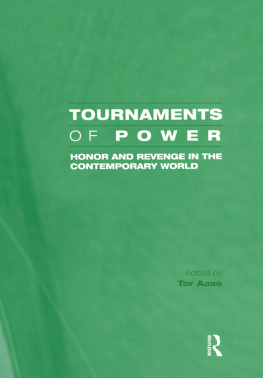
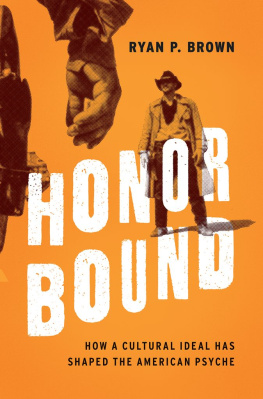
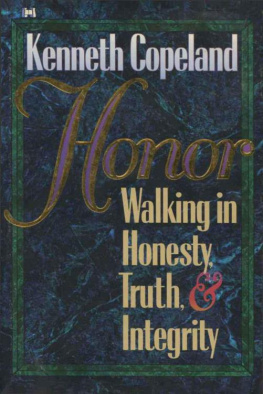

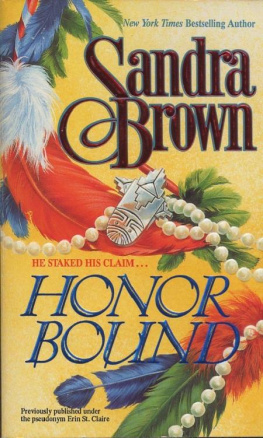
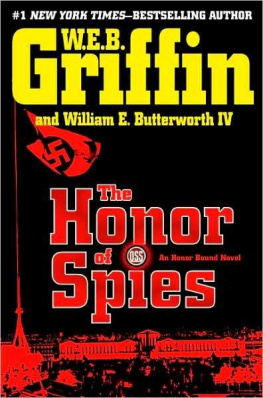
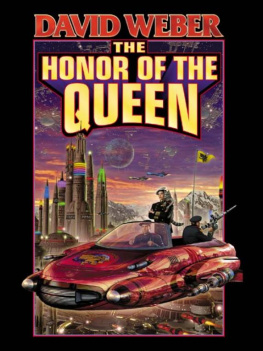

 A WARRING NATION
A WARRING NATION